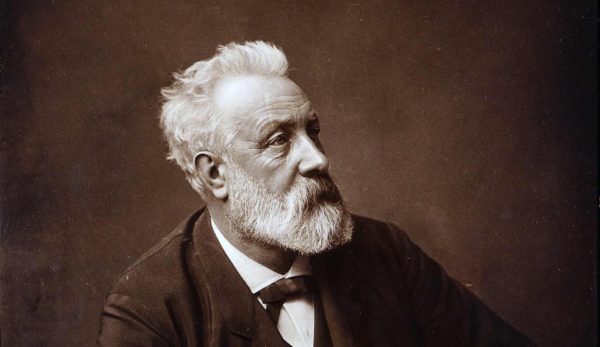The famous writer Jules Verne became an idol for millions of readers, inspiring entire generations to dream of adventures. Despite the fact that he never visited most of the places he described in his books, Verne managed to portray them so accurately and vividly that it’s hard not to believe in what you read.
Throughout his life, Jules Verne created numerous works that achieved cult status, and his books have been translated into many languages and remain incredibly popular to this day.
Facts from Jules Verne’s Biography:
- French Origins with Scottish Roots: Although Jules Verne was a Frenchman, he had Scottish ancestry on his mother’s side.
- Family Background: Jules Verne had a younger brother and three younger sisters.
- Religious Education: At his father’s insistence, Verne received a religious education in a seminary.
- Linguistic Skills: By his youth, he had already mastered Latin and Greek.
- Dream of Becoming a Sailor: As a child, Jules Verne dreamed of becoming a sailor. At the age of 11, he even ran away from home to join a ship as a cabin boy. Fortunately, his father managed to catch him in time.
- Admiration for Victor Hugo: One of young Jules Verne’s idols was Victor Hugo. He even tried writing in a similar genre, but his father, who wanted him to follow in his footsteps and become a lawyer, did not support his literary ambitions.
- Health Issues: For most of his life, Jules Verne suffered from abdominal pains. He believed it was a hereditary condition, but modern researchers suspect that he had colitis.
- Persistent Pursuit of Literature: For many years, his father urged him to abandon writing and take over his law practice, but Verne consistently refused.
- Highly Translated Author: Jules Verne ranks as the second most translated author in the world, with only Agatha Christie’s works being translated into more languages.
- First Adventure Story: His first adventure story, “The First Ships of the Mexican Navy,” was written under the influence of James Fenimore Cooper’s books.
- Inspiration from Travel: Verne drew inspiration for his works from his travels, diligently recording everything he saw and heard.
- Love for the Sea: When fame and wealth came to him, Verne fulfilled his lifelong dream of being at sea and bought three yachts in succession.
- Global Reach: Jules Verne’s works have been officially translated into 148 languages.
- Work Ethic: There were times when he experienced writer’s block, but when inspiration struck, he could work for 15-16 hours a day without even stopping for meals.
- Shot by His Nephew: Verne was once shot in the leg by his nephew, who suffered from a mental disorder and shot his uncle during a fit of madness.
- Friendship with Alexandre Dumas: In his youth, Verne met the famous Alexandre Dumas and later became close friends with Dumas’s son, Alexandre Dumas Jr.
- Member of the French Geographical Society: Verne was a full member of the French Geographical Society, which included many prominent scientists and explorers of that time.
- Visionary Creations: Verne described many inventions in his works that did not exist at the time but were later created, including the diving suit and the airplane.
- Involvement in Theater: In addition to writing literature, Verne was also involved in theater and wrote musical comedies.
- Filmmaking Legacy: Verne’s son, Michel, became a filmmaker and adapted five of his father’s works into films.
- Grandson’s Dedication: Verne’s grandson dedicated nearly 40 years of his life to writing a biography of his famous grandfather.
- Lost Manuscript: Verne’s novel “Paris in the 20th Century” was long thought to be lost until it was accidentally discovered by his great-grandson.
- Prolific Note-Taker: Throughout his life, Verne recorded everything he found important or interesting. By the time of his death, his personal library contained around 20,000 notebooks filled with his notes.
